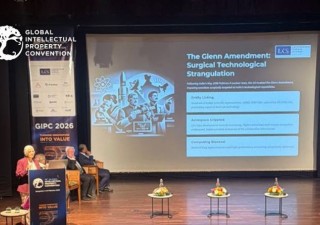Date of design registration: Understanding versus reality
28 October 2021

James Anderson, in his novel called The Never-Open Desert Diner, said that “Sometimes the smallest things are so damn unforgivable. Maybe because they aren't small—they only seem that way to someone else. You never know what someone holds scared until it's too late.” This quote is aptly justified in the verdict delivered by Hon’ble High Court of Karnataka in the matter of Greenchef Appliances Limited v, Mercury Appliances India and Other; MFA 4026/2020, on March 19, 2021.
The high court was dealing with an appeal arising out of order dated March 6, 2020, passed by the city civil court in Bengaluru, in a civil suit bearing No. O.S. 235/2019. In 2019, Greenchef Appliances Limited instituted a suit for infringement of its registered design and passing off with respect to its “Mixer Grinder” before the city civil court, Bengaluru. In the first instance, the trial court granted ad-interim ex-parte order of injunction in favour of Greenchef. Aggrieved by the order, the defendants filed an application seeking vacation of the order on various grounds. One of the grounds taken by one of the defendants was that it had a registered design in its favour for its “Mixer Grinder” which, although it was applied for after Greenchef’s date of application, was registered before the grant of registration to Greenchef:
|
Particulars |
Filing Date |
Date of grant |
|
Greenchef’s design |
October 31, 2017 |
November 19, 2018 |
|
Defendant No. 3’s design |
July 12, 2018 |
August 29, 2018 |
Figure 1. Application and grant dates for Greenchef’s Mixer Grinder and Defendant
No. 3’s design.
The trial court on March 6, 2020, vacated ad-interim ex-parte order on various grounds. One of the grounds for vacating the injunction was that Defendant No. 3’s design was registered prior to the registration of Greenchef’s design, as the certificate of registration in favour of Defendant No. 3 had been issued prior to that of Greenchef and that Defendant No. 3’s registration was already published in the journal prior to Greenchef’s registration.
Aggrieved by the order, Greenchef filed an appeal before the High Court of Karnataka. The High Court of Karnataka on March 19, 2021, allowed the appeal in part. The high court, while dealing with a number of other issues, categorically held that “by virtue of Section 5(6) of the Designs Act, 2000, the registration of the plaintiff's design which was granted on 19.11.2018 would relate back to the date of its applicationi.e., 31.10.2017 and consequently, the plaintiff's registration of its design would be effective from 31.10.2017 itself much prior to the defendant No.3 submitting its application on 12.07.2018.”
Here it is important to note that as per Section 5(6) the Designs Act, 2000, “A design when registered shall be registered as of the date of the application for registration.” An obvious corollary of that would be a registration granted under Designs Act, 2000 is effective from the date of the application for registration. However, the term “date of the application for registration” is not explicitly mentioned in the act to mean “effective from the date of the application for registration.”
Interestingly, Clause 04.05 of the Manual of Designs Practice and Procedure as published by Office of the Controller General of Patents, Designs & Trademarksmentions that “The date of registration of an ordinary application is the date of filing of the application.” On a first blush, it might seem to an IP practitioner that this is a no-brainer. But if we diagnose a little bit, we can infer that Hon’ble High Court of Karnataka has further nailed this understanding by using the terms like date of registration would relate back to the date of its application and that a design registered under the Designs Act is effective from the date of its application for registration. Before this order this stand has been cleared by two different high courts in the following manner:
- A full bench of the High Court of Delhi in the matter of Reckitt Benkiser India Ltd. v. Wyeth Ltd; FAO(OS) 458/2009 on March 15, 2013, held that “On a close reading of Section 44 (1) and (2), and taking note of the provision of Section 5(6) of the Act which provides that registration is effective from the date of the application for registration.”
- The Kolkata High Court in the matter of T.K. Shawal Industries Pvt. Ltd. v. Controller of Patents and Designs & Ors; AID No. 3 of 2016, on July 10, 2017, held that “Once the said application is allowed under Section 5(6) of the Design Act, 2000, it must relate back to the date of registration of the application.”
In a nutshell, the High Court of Karnataka has further reinforced the scattered understating of Section 5(6) of the Designs Act, 2000. To sum up, as Marty Rubin said, “A tiny sliver of ice can cause a ten car wreck.” And, as discussed above, had the High Court of Karnataka not come to the rescue in interpreting Section 5(6) of the Designs Act, 2000, then the IP fraternity would have been left with an interpretation which seems minuscule but has the potential to cause irreparable damage.



 - K&S Partners 2021-preview.jpg)





